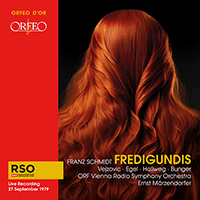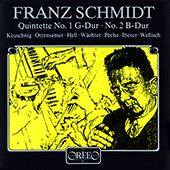
Franz Schmidt (1874 - 1939)
A piano pupil of Leschetizky and composition pupil of Bruckner, Franz Schmidt earned his living at first as a cellist in the Vienna Court Opera, where he experienced conflict with Mahler. He later taught composition at the Vienna Staatsakademie and was director of the Musikhochschule from 1927 to 1931. His work as a composer has something in common with Max Reger, particularly his music for the organ.
Stage Works
Schmidt’s opera Notre Dame, based on Victor Hugo, had some success and excerpts, notably an Intermezzo, are heard in concert programmes.
Choral Music
Das Buch mit sieben Siegeln(‘The Book with Seven Seals’), based on the Apocalypse, has its own place among modern oratorios.
Orchestral and Chamber Music
Schmidt wrote four symphonies, Variations on a Theme of Beethovenfor piano left hand and orchestra, and a Piano Concerto for the left hand. These last two works, with various chamber works, were composed for the pianist Paul Wittgenstein (brother of the philosopher Ludwig Wittgenstein), who had lost his right arm in the First World War.
Organ Music
Schmidt added considerably to the repertoire of organ music, with a series of chorale preludes, preludes and fugues, toccatas, and sets of variations.
RELATED MEDIA:
Classical Discoveries – FRANZ SCHMIDT: beyond the “Seven Seals”

















